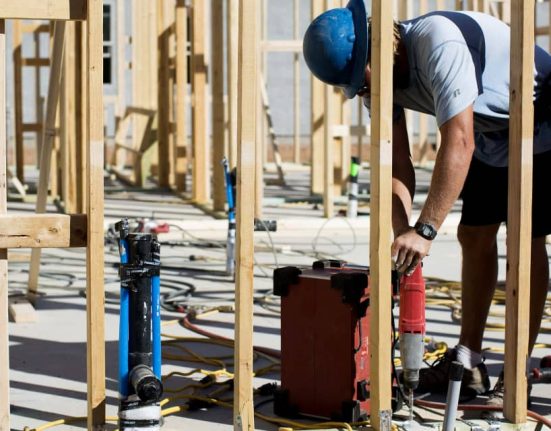The specialized lenders known as mortgage real estate investment trusts have a prominent spot on the injured list of players in commercial real estate.
Since rising rates started to weigh on real estate borrowers in early 2022, shares of two mortgage REITs—
and
—have fallen 15% and 35%, respectively.
The mortgage REITs are watched by Stephen Laws at Raymond James, who published a study of how they are setting aside reserves for potential loan losses on Wednesday. December quarter results for most of the 15 companies he follows show they added to their reserves, based on their views about the economic outlook and rising rates.
The largest reserves have been taken by REITs with the highest proportion of office loans:
Granite Point Mortgage Trust
,
and Blackstone Mortgage. That should surprise no one.
Companies focused on apartment loans have lower reserves, including
and
Advertisement – Scroll to Continue
Accounting rules require lenders to add reserves in response to problems with specific loans, but also based on how similar loans have performed for them and the industry, as well as their general view of the economy. Increases to reserves are noncash charges that reduce earnings.
Starwood and Blackstone are two of the biggest mortgage REITs. With more than a third of its loans to offices, Blackstone Mortgage has attracted more scrutiny than its REIT peers. At the most recent count, nearly 15% of its free-trading shares were sold short.
Laws’ report shows a contrast between Blackstone’s reserves and Starwood’s.
Advertisement – Scroll to Continue
At Blackstone Mortgage, reserves have doubled since late 2022, to a level equal to 2.25% of its loan commitments. Starwood’s have tripled over the same period, to 1.7% of its loans.
Most of the increases to Blackstone’s loss reserves have been for specific troubled loans. Its general reserves, based on its view of its portfolio and the economy, have stayed fairly flat.
On its December quarter earnings call, the REIT said it boosted specific reserves for three troubled loans. This quarter, it hopes to move four loans out of its reserves—by selling or foreclosing them. Blackstone said it is maintaining liquidity at near record levels.
Advertisement – Scroll to Continue
“BXMT weathered a challenging 2023 with results that underscore the resilience of our business,” said Chief Executive Katie Keenan on the Feb. 14 call. “We reported record interest income and distributable earnings, generating $3.05 per share for the year and covering our dividend 123%.” The $2.48 a share dividend exceeded the $1.10 reduction in the REIT’s book value from reserve increases, she added.
By contrast, very few of Starwood’s reserves reflect problems with specific loans. Nearly all of its reserves were taken out of general caution over commercial real estate lending and the economy.
That doesn’t mean Starwood has had no problems with specific loans. On its last earnings call, the REIT discussed several properties it has taken over in foreclosure. Accounting rules don’t include those in reserves.
Advertisement – Scroll to Continue
Combining the value of its reserves and the properties it has taken over, you could say that Starwood’s reserves actually amount to a conservative 3% of its lending portfolio, said Chief Financial Officer Rina Paniry on the REIT’s Feb. 22 earnings call.
Still, the December reserve numbers show that Blackstone Mortgage is wrestling with problematic, identifiable loans. Starwood’s reserves show general wariness; it has already charged off its problem loans.
Write to Bill Alpert at william.alpert@barrons.com







